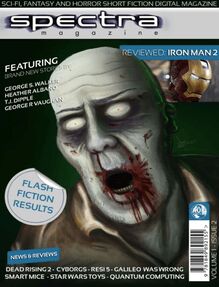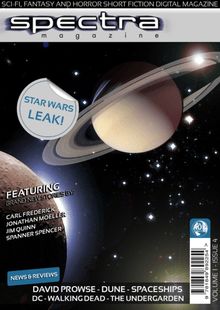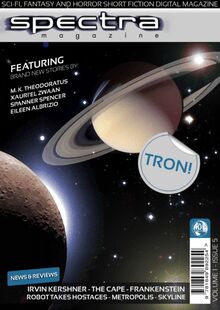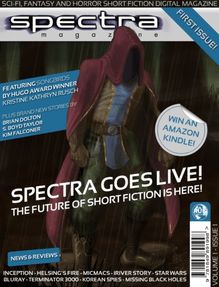-
 Univers
Univers
-
 Ebooks
Ebooks
-
 Livres audio
Livres audio
-
 Presse
Presse
-
 Podcasts
Podcasts
-
 BD
BD
-
 Documents
Documents
-
- Cours
- Révisions
- Ressources pédagogiques
- Sciences de l’éducation
- Manuels scolaires
- Langues
- Travaux de classe
- Annales de BEP
- Etudes supérieures
- Maternelle et primaire
- Fiches de lecture
- Orientation scolaire
- Méthodologie
- Corrigés de devoir
- Annales d’examens et concours
- Annales du bac
- Annales du brevet
- Rapports de stage
La lecture à portée de main
Vous pourrez modifier la taille du texte de cet ouvrage
Découvre YouScribe en t'inscrivant gratuitement
Je m'inscrisDécouvre YouScribe en t'inscrivant gratuitement
Je m'inscrisEn savoir plus
Vous pourrez modifier la taille du texte de cet ouvrage
En savoir plus

Description
Sujets
Informations
| Publié par | Andrews UK |
| Date de parution | 06 décembre 2010 |
| Nombre de lectures | 0 |
| EAN13 | 9781849892537 |
| Langue | English |
| Poids de l'ouvrage | 1 Mo |
Informations légales : prix de location à la page 0,0124€. Cette information est donnée uniquement à titre indicatif conformément à la législation en vigueur.
Extrait
EDITOR’S LETTER
I find this time of year to be immensely creative. Once summer is behind us, and the nights draw in, it feels much easier to spend evenings sat at the computer, dreaming those waking dreams we love to share.
Either by chance or design, much of our culture’s mythology is compressed into the last three months of the year. October brings us Halloween, and encourages the dark side of our creativity to sing, dance and be savagely merry. The longer evenings help out immensely, and while a lot of people complain about the cold, wind and rain, horror and dark fantasy ride comfortably on the back of those dark, foreboding clouds.
Then, in the UK, we’re almost immediately thrown into Bonfire Night. Now there’s a strange holiday, if ever there was one.
It’s been 405 years since Guy Fawkes attempted to blow up Parliament, and by some strange twist of political brainwashing, the country still gets together to punish him on an annual basis. Every year, thousands of Fawkesian effigies are thrown onto fires that reach 30 feet and more into the air, to the thundering chorus of fireworks raging in the background.
What exactly are we doing on Bonfire Night? It’s no secret that the government is taking the opportunity to remind us what happens to anyone who tries to interfere with their political power. But there’s scarcely a man or woman in Britain who wouldn’t rather throw an effigy of a politician onto that blazing stack.
Guy Fawkes’s crime might have been considered terrorism - and I know we’re strictly obliged to detest all forms of terrorism these days, lest we face the slings and arrows of the righteous patriot - but if Britain dared to answer honestly, it’s my suspicion that it would think fondly of his treasonous attempt.
After all, isn’t that what the fireworks are about? The bonfire might be there to symbolise an eternal punishment for attacking political and religious dominion, but a sky full of celebratory explosions is surely the war cry of a country contemplating how marvelous it might have been had Fawkes succeeded.
But I’m not here to talk politics or incite rebellion. The point we should take from this time of rich mythology is one of examination, where creativity festers in abundance and is rarely tapped. Dickens reinvented Christmas, immediately and single handed, in one of the finest books ever written, A Christmas Carol, and with the mish-mash of pagan and Christian celebration next on our tight mythological schedule, now is a great time to consider just why we do what we do.
And then to write a story about it.
editor@spectramagazine.com
NEWS FROM ACROSS THE SCI-FI, HORROR AND FANTASY SPECTRA
BABYLON 5 CREATOR DROPS SUPERMAN, WONDER WOMAN
JOE MICHAEL STRACZYNSKI OPTS FOR GRAPHICS OVER MONTHLYS
Neither Superman nor Wonder Woman easily fit into our sci-fi category (maybe fantasy? Nah, probably not that one, either) but the writer of their DC Comics monthlys certainly does. Joe Michael Straczynski was the creator of the short lived, but much loved Star Trek rival, Babylon 5, and that makes him sci-fi all over, and up and down.
Since his graphic novel debut with the critically acclaimed Superman Earth One, he’s shot to fame in the comic book world, too. Taking the helm at both Superman and Wonder Woman monthly comics in a one year deal with the publishing giant, he’s now stepping away to concentrate more on the graphic novel side of comic writing.
Another nail in the coffin of paper and print monthlies?
NEWS FROM ACROSS THE SCI-FI, HORROR AND FANTASY SPECTRA
DAVID PROWSE -
DARTH SPOILER
IN 1978, DARTH VADER ACTOR GAVE AWAY STAR WARS’ BIG SECRET
George Lucas is pretty good at making things disappear when they get in the way of his Star Wars saga. It wasn’t until the internet ran red with the blood of pirate videos that his agonizing Star Wars Holiday Special once again reared its head, after he successfully saw the light (a little too late) and crushed it like a rebellion uprising.
So it comes as something of a surprise that, 32-years on, a serious spoiler alert has finally been revealed. Back in 1978, David Prowse was touring California promoting Star Wars, and a short piece in a local newspaper gave away a serious piece of hot gossip from far, far away.
“[Prowse] offered a glimpse of a possible plot for the second sequel,” the paper reads. “Darth Vader and Luke Skywalker ... are hooked up in a do-or-die lightsaber battle when Luke,” get this, “learns that Darth is, in fact,” get ready for it folks, “his long-lost father!”
It’s no wonder the Green Cross Code Man (Prowse, for non-Brits out there) was never invited back for Revenge f the Sith.
THE AFTERLIVES OF SCHRÖDINGER’S CAT
BY
CARL FREDERICK
While fighting to suppress the tremor in his hand, William Norberg levered the joystick, maneuvering his electric wheelchair through the physics lab and up to Professor Komar’s desk. He also fought against getting his hopes up.
Looking distinctly uncomfortable, the professor stood. “Doctor Norberg,” he said, not making eye contact but gazing over the chair as if an invisible nurse were pushing it. “Do you think it’s wise for you to... I mean, did you come alone?”
“Yes.” William spoke the word more harshly than he’d intended.
Komar winced.
To lighten the mood and perhaps make the Professor more comfortable, William smiled, and then said, “Forget the ‘doctor’. In this town, everybody and his dog has a doctorate. Just call me William.”
Komar gave a smile, clearly forced, and sat.
“I must say I’m intrigued with your proposal,” said William. “Although you must admit, it sounds rather - ”
“The physics is sound. Cutting edge relativistic quantum mechanics.” Komar seemed defensive. No doubt he’d been given much grief about the experiment. He picked up a piece of chalk from his desk. There was no blackboard in the room, but holding the chalk, the professor seemed more confident. “Your world-line,” he said in a lecturing voice, “unfortunately, is expected to terminate in a few days.”
“You mean,” said William, “that I will soon die.”
“That’s what I said.” Komar scraped the chalk with a thumbnail, releasing dandruff-like flurries that fell to his desk. “In this world-line, you will.” Komar gazed with an intense expression that William had only seen before in the eyes of people who’d accosted him with political tracts. “The Schrödinger Cat Paradox,” he went on. “Of course you know it’s resolved by quantum decoherence: increasingly heavier objects increasingly shifting from superpositions to mixtures.” He gave a bark of a laugh - a sound William could scarcely distinguish from a clearing of one’s throat. “If we could suppress decoherence, we really could have that multitude of cats.” He slammed his hand to the desk, breaking the chalk. “And we can do it now. I’m sure of it.”
“You do know,” said William, “that I haven’t the fuzziest notion what you’re talking about.”
Komar narrowed his eyes. He appeared puzzled.
“My doctorate,” said William, “is in Indigenous American Studies.”
“Oh!” Komar shook his head. “You must excuse me. I automatically assume that everyone who visits this lab is a Ph.D. physicist.”
“I do try to keep current with science.” A sudden deep sadness swept over William; keeping current was over for him now. He took a breath and fought down that little foretaste of death. “But with my background in mind,” he said, “perhaps you could give a simpler explanation.”
Komar nodded. “The path of your life in time and space, your world-line, is one of an infinity of your world-lines, each co-existing in a different parallel universe.” He leaned forward, looking like a televangelist pleading for souls. “And we can move you to any one of them.”
William nodded. “Yes, I got that. But why do you need someone who is... who is terminally ill?”
Again, Komar seemed uncomfortable. “It’s simpler for us if we take those world-lines which all terminate at the same point, and terminate soon.”
“And my line will terminate extremely soon.”
Komar cast his eyes down at his desk. “You’ll be advancing science,” he said, softly.
“I assume I’ll know if it works,” said William. “But how will you know?”
“We’ll bring you back. Right before you… before you terminate.” He gestured expansively at a coffin shaped metal enclosure at the rear of the lab. “That device: not only will it allow you to change world-lines, but it also allows us to exert a force on time tracks, extrapolating back from the termination point. Since all non-intersecting curves are topologically equivalent, we’ll be able to pull whatever line you are in, to everywhere touch your own world-line.” Komar seemed much more comfortable discussing physics than people. “And since a line has an infinitesimal thickness, we will get you back to your original track.”
“Where I’ll still be almost at the point of death - even closer, probably.”
“I’m sure there’ll still be time to have your family with you.”
“I don’t have family. No attachments at all - which I suppose is for the best.”
“Well....” Komar brightened. “Look. When you shift to another world-line, you might shift to another you, but many years earlier - younger. You could have all those years to live, before we pull you back.”
“So you’ve said. In fact, that was the reason I’d even considered your proposal. I’d be dishonest if I said I didn’t want to go on living.”
“You’ll do it, then?”
“Maybe.” Komar started to say something, but William waved him quiet. “Yes, I know. I haven’t much time to decide.” William stroked a shaking hand across his forehead. “I haven’t much time,” he repeated at a whisper. He fought for control - if not of his body, at least of his voice. “What about the me I’m shifting to?” he asked,
-
 Univers
Univers
-
 Ebooks
Ebooks
-
 Livres audio
Livres audio
-
 Presse
Presse
-
 Podcasts
Podcasts
-
 BD
BD
-
 Documents
Documents
-
Jeunesse
-
Littérature
-
Ressources professionnelles
-
Santé et bien-être
-
Savoirs
-
Education
-
Loisirs et hobbies
-
Art, musique et cinéma
-
Actualité et débat de société
-
Jeunesse
-
Littérature
-
Ressources professionnelles
-
Santé et bien-être
-
Savoirs
-
Education
-
Loisirs et hobbies
-
Art, musique et cinéma
-
Actualité et débat de société
-
Actualités
-
Lifestyle
-
Presse jeunesse
-
Presse professionnelle
-
Pratique
-
Presse sportive
-
Presse internationale
-
Culture & Médias
-
Action et Aventures
-
Science-fiction et Fantasy
-
Société
-
Jeunesse
-
Littérature
-
Ressources professionnelles
-
Santé et bien-être
-
Savoirs
-
Education
-
Loisirs et hobbies
-
Art, musique et cinéma
-
Actualité et débat de société
- Cours
- Révisions
- Ressources pédagogiques
- Sciences de l’éducation
- Manuels scolaires
- Langues
- Travaux de classe
- Annales de BEP
- Etudes supérieures
- Maternelle et primaire
- Fiches de lecture
- Orientation scolaire
- Méthodologie
- Corrigés de devoir
- Annales d’examens et concours
- Annales du bac
- Annales du brevet
- Rapports de stage










